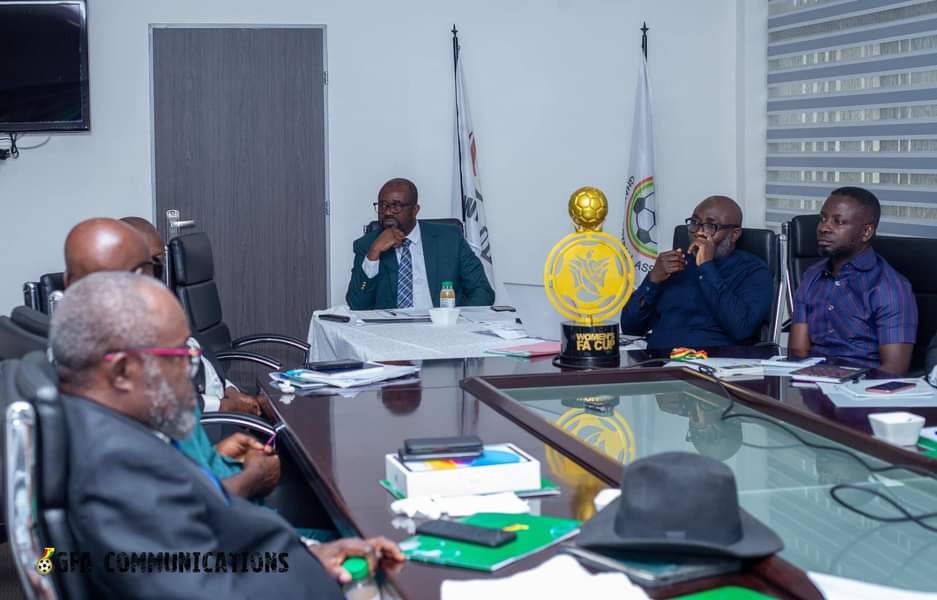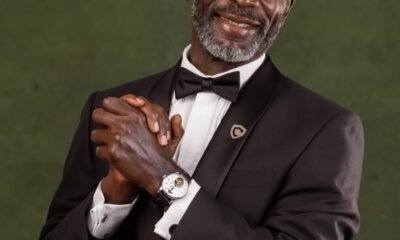Sports
Corruption trial of Diack begins

Lamine Diack, the former head of athletics’ governing body, arrived in court in Paris yesterday to stand trial on charges of corruption, money laundering and breach of trust linked to a Russian doping scandal.
Prosecutors allege he solicited 3.45 million euros from athletes suspected of doping to cover up the allegations and allow them to continue competing, including in the 2012 London Olympics.
Wearing a dark grey suit, Diack, who turned 87 on Sunday, read through his files as he awaited the arrival of the judges.
He has previously denied wrongdoing. His lawyers have said the accusations are baseless.
Diack, from Senegal, led the governing International Association of Athletics Federations (IAAF), now renamed World Athletics, from 1999-2015 and was among the most influential men in the sport. He lives under house arrest in Paris and faces a jail sentence of up to 10 years if convicted.
The trial had been due to start in January but was postponed after new documents containing testimony from his son and co-defendant, Papa Massata Diack, were submitted to the court.
Senegal has refused to extradite Papa Massata, who worked as a marketing consultant for the IAAF. He also faces charges of money laundering, corruption and breach of trust, according to the indictment, and will be tried in absentia.
The other defendants are Habib Cisse, Diack’s former lawyer at the IAAF; Gabriel Dolle, who oversaw doping tests at the IAAF; and Russians Valentin Balakhnitchev and Alexei Melnikov, who were Russia’s athletics’ federation chief and head athletics coach respectively at the time of the alleged cover-up.
Balakhnitchev and Melnikov were not in court.
Investigators at the French National Financial Prosecutor’s Office (PNF) describe a web of corruption in world athletics under Diack’s leadership.
In a separate case, French prosecutors are investigating alleged bribes related to the Olympics and World Athletics Championships.
They suspect Tokyo’s bidding committee bribed the Diacks in 2013 to secure votes, which the committee has denied.
Sebastian Coe, Diack’s successor, has undertaken to rebuild trust in athletics and has introduced changes to the sport’s governance. – Reuters
Sports
GFA issues statement on Black Star AFCON qualifying fiasco

The Ghana Football Association (GFA) wishes to express its sincerest apologies to the good people of Ghana for the Black Stars’ inability to qualify for the Africa Cup of Nations (AFCON) 2025.
We understand the disappointment and frustration this failure has caused, and we share in the pain and sadness of our beloved fans. We acknowledge that the team’s performance did not meet the high expectations of the nation, and for that, we are truly sorry.
We would like to take this opportunity to express our heartfelt gratitude to our loyal football fans for their unwavering support and encouragement throughout the qualifying campaign. Your passion and dedication are what drive us to strive for excellence.
Going forward, the Executive Council, at its meeting of Wednesday, 20th November, 2024, took the following key decisions:
- Immediate dissolution of the Management Committee of the senior national football team, the Black Stars. In doing so, we sincerely thank the members of the Committee for their service to Ghana Football over the years.
- The Executive Council will meet the Head Coach of the Black Stars, Mr. Otto Addo, on the 27th of November, 2024, to discuss his Technical report on the just ended AFCON qualifiers and the overall performance of the Technical team since assuming duty earlier this year.
Ghana Football Retreat
Given the passion and concern shown by members and stakeholders of Ghana Football as well as the general public, the GFA shall hold a Ghana Football Retreat to which members and all stakeholders shall be invited.
Members and stakeholders such as SWAG and the Media, National Sports Authority, PFAG, former captains and players, coaches, supporters, Football enthusiasts, Sports-related professionals (Medics, Economists, Marketers etc), and Opinion leaders (including traditional rulers) will be invited to the Retreat.
The Ministries of Sports, Finance and Education, and key Authorities such as Ghana Revenue Authority and Ghana Tourism Authority will be represented.
The meeting shall be held on the 28th of November, 2024, at the Ghanaman Soccer Center of Excellence, with the primary purpose of soliciting views and perspectives from stakeholders of Ghana Football. The output from this Retreat shall be used to develop a roadmap for enhancing the performance of the Black Stars and our other national teams.
We appreciate the support and patience of the Ghanaian people and look forward to making amends in the future.
…… END ……
Sports
Give local players the chance now

Withdrawals from national teams assignment has cast a slur on this week’s selections released by Football Associations globally.
England’s Three Lions had about six players withdrawing to take care of minor injuries suffered from the intense matches of the English Premier League (EPL), European Champions League competition and other club commitments.
Others like Belgium and Switzerland have suffered similar fate as countries prepare to honour international matches.
And Ghana’s Black Stars have not been spared in the season of withdrawals.
The Ghana Football Association (GFA) on Monday reported that many as eight players had withdrawn from the squad announced by Coach Otto Addo for a double-header against Angola and Niger.
Ahead of their first training session for the Angola and Niger games, Antoine Semenyo, Inaki Williams, Jonas Adjetey, Tariq Lamptey, Jerome Opoku, Alexander Djiku, Ibrahim Osman and Joseph Painstil all gave reasons to be excused from duty.
Inaki Williams picked up a hamstring injury on November 7 and has since not been able to train; Tariq Lamptey had a calf discomfort that got aggravated last week, and currently undergoing rehabilitation with his club; Jonas Adjetey is on his way to full recovery but had a setback in their last League game, while Jerome Opoku suffered a chronic back pain which got worse during a Super Lig game against Besiktas on Sunday.
Antoine Semenyo is nursing an injury of the patella tendon due to overload of games, Alexander Djiku suffered an aggravation of an existing hamstring that got him substituted in their last game on Sunday; Ibrahim Osman picked up a hamstring injury in his last outing for his club which got him substituted at half time with Joseph Painstil’s reason personal.
The mass withdrawals only goes to confirm calls to take a second look as the congested football fixtures European clubs and players have complained bitterly about.
Ghana has since invited six players to replace the eight that withdrawn. My disappointment, however, lies in the fact that no local player was picked among the replacement to add to the three announced in the first call up.
Asante Kotoko’s Emmanuel Antwi, Razak Simpson of Nations FC and Samartex FC’s Isaac Afful were announced in the first 23-man squad announced by Otto Addo.
That sparked excitement among followers of the local game but expected the six replacement to have at least three more of the local based professionals.
That would have increased the local representation to six and would have been in contention in getting one or two starting roles.
Otto Addo deserves commendation for extending invitations to players from the Ghana league but the time to go a step further by giving them playing chances should be now.
With a thick cloud hanging around Ghana’s qualification and hopes at an all-time low, this should be the time to put some faith in players featuring in the GPL.
Ghana should be guided by the reasons that have called for the massive withdrawals in several national teams in order to avoid such shocks in future.
Morale is low in the team over the magnitude of a task for Sudan to lose all two games and for the Stars to win all with their current form.
But those two matches remain high-profile enough for the local based players to use to justify their inclusion for places in the national team
By Andrew Nortey







